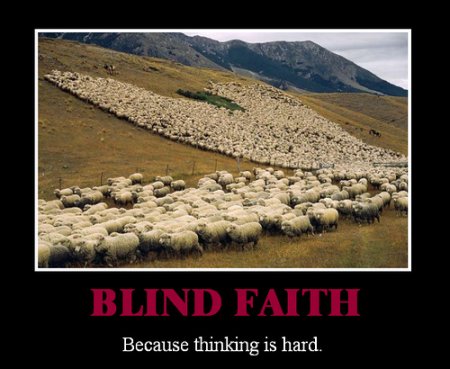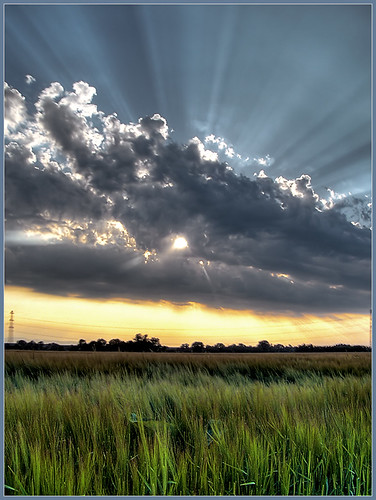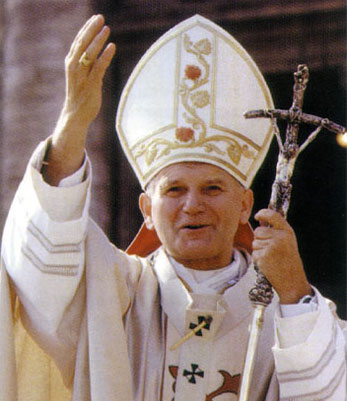 heir correlation support the validity of environmentalism, of religion, or of both? I think that this task of trying to find a moral imperative to be environmentally conscious overlooks the scientific fact of man’s place in nature. If we destroy our planet, we won’t be able to live on it, plain and simple. I don’t really understand why this logic isn’t enough to encourage people to think more sustainably towards the future, but since it obviously isn’t, we must create moral imperatives for them in the only thing they seem to believe blindly, religion.
heir correlation support the validity of environmentalism, of religion, or of both? I think that this task of trying to find a moral imperative to be environmentally conscious overlooks the scientific fact of man’s place in nature. If we destroy our planet, we won’t be able to live on it, plain and simple. I don’t really understand why this logic isn’t enough to encourage people to think more sustainably towards the future, but since it obviously isn’t, we must create moral imperatives for them in the only thing they seem to believe blindly, religion. Religious faith is sometimes the only source of moral imperative
source: http://petursey.files.wordpress.com/2009/10/blind-faith.jpg
We’ve already discussed Western religion’s role in this, and how its view of compassion can be selectively applied. In Jainism, however, who, or what, the moral code protects is strictly delineated. Following the path of Ahimsa, humans must not harm nor think of harming any living thing, plant or animal. This comes from “the development of a mental attitude in which hatred is replaced by love (236).” Love for all things and people within creation, stemming from a shared divinity of life. The implications for this in environmentalism are obvious. However, such a path is not enough to mitigate the affect man has on the environment. Would a Jain monk understand the long term implications of releasing carbon dioxide from burning fossil fuels? Or the interruption of natural land progression by suppressing the periodic burning of scrubland? What about the overpopulation of deer which results in the end of oak regeneration? In these instances, ahimsa is not enough, unless coupled with a deeper understanding of the implications of all our actions, not just those that result in the direct destruction of life.
Jainism does have a positive effect overall when put in the context of human relations. The idea that “one self dwells in all… by serving another, you serve your own self (237)” speaks to the unity of man as a species. From that perspectiv e, ecology arises once again as a central issue. If we are all each other’s protectors, if we all dwell in a singular self of existence, then we have a responsibility to maintain a suitable environment for that singular self to continue to exist. Thus we protect the environment for the future success of human life.
e, ecology arises once again as a central issue. If we are all each other’s protectors, if we all dwell in a singular self of existence, then we have a responsibility to maintain a suitable environment for that singular self to continue to exist. Thus we protect the environment for the future success of human life.
What are we leaving for future humans?
source:http://www.thedailygreen.com/cm/thedailygreen/images/beautiful-nature2-pp-www-lg.jpg
But what does this interpretation say of morality? That it is fueled by self-interest? I don’t think most Jain scholars would agree, from what I have read in the anthology and on the theory of ahimsa in general. In the essay on Jainism and ecology it argues that “we have a moral obligation toward nonhuman creation (145).” But where does that morality come from? Is it a spiritual creation, a respect for the divine natural world, or a humbled view of human accomplishment in the face of nature? This does not seem self-serving, but rather depreciative of humanity, and I think this is one of the main differences in Eastern and Western spiritual tradition. As the essay says, “the most urgent task of both science and religion is to assert the unity and sacredness of creation, and to reconsider the role of humans in it (245),” and I believe that Jainism fits that role. In western tradition, however, the sacredness of creation has been asserted, but man continues to dominate its trajectory.
It is a good question to ask what role man is to play in the “divine” theatre that is nature.  Will we be shepherds or slaughterers? Will we take what we need, or take what we want? We recognize the importance man has in interacting with nature, caring for it, using it to serve the species, as it states “agriculture is the noblest profession (241),” but where do we draw the line? What perspective do we take on the environment and our responsibility, our moral imperative, to protect it? When viewed from a spiritual perspective, we must consider where divinity lies, or to be less secular, where the beauty of creation is manifest. And this is the difference between eastern and western thought, for in the east divinity lies in all nature, but in the west it lies in man and in gods work through man. So if we could merge these two perspectives, superimpose them on one another, we’d be left with a question similar to Professor Bump’s: “who would not be upset if a saint was lopped, maimed, and killed? (222)” The only difference lies in who your saints are, but regardless, it is agreed that the divine should never be destroyed.
Will we be shepherds or slaughterers? Will we take what we need, or take what we want? We recognize the importance man has in interacting with nature, caring for it, using it to serve the species, as it states “agriculture is the noblest profession (241),” but where do we draw the line? What perspective do we take on the environment and our responsibility, our moral imperative, to protect it? When viewed from a spiritual perspective, we must consider where divinity lies, or to be less secular, where the beauty of creation is manifest. And this is the difference between eastern and western thought, for in the east divinity lies in all nature, but in the west it lies in man and in gods work through man. So if we could merge these two perspectives, superimpose them on one another, we’d be left with a question similar to Professor Bump’s: “who would not be upset if a saint was lopped, maimed, and killed? (222)” The only difference lies in who your saints are, but regardless, it is agreed that the divine should never be destroyed.
Nature is divine.
source: http://static.flickr.com/63/171449609_ca3f8640df.jpg






